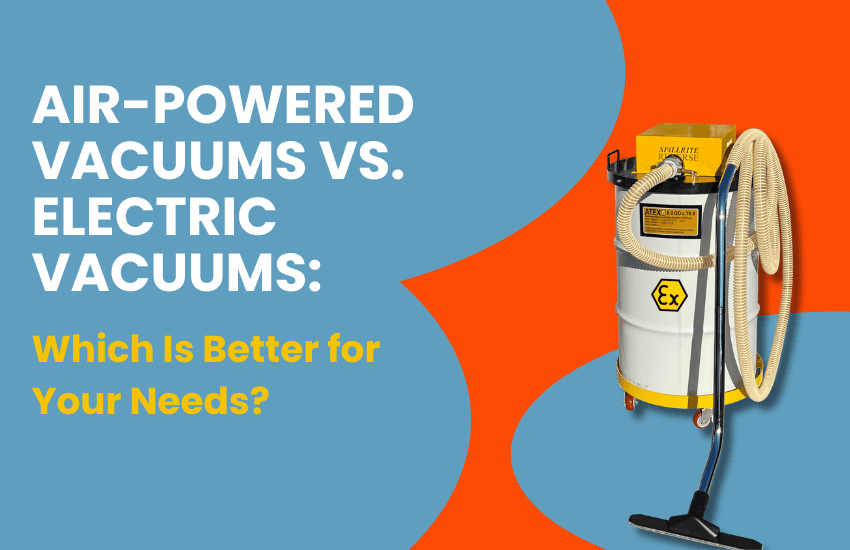Vacuum cleaners are indispensable tools in modern households, making cleaning easier and more efficient. As technology advances, the debate between air-powered and electric vacuums has gained attention. Understanding the differences, benefits, and drawbacks of each type can help you decide which is better for your needs. This article explores the key characteristics of air-powered and electric vacuums, comparing them across various parameters to help you make an informed choice.
Air-Powered Vacuums: Definition
Air-powered vacuums, also known as pneumatic vacuums, use compressed air to create suction. This design allows them to operate without electrical components, relying on air pressure to draw in debris and dirt. These vacuums are often used in industrial settings, where compressed air is readily available. Their simplicity makes them robust and durable, as there are fewer electrical parts that can malfunction.
Air-powered vacuums are typically used in environments where electrical hazards are a concern or where high durability is required. Because they do not have electric motors, they are less prone to overheating and can be more reliable in harsh conditions. However, their reliance on compressed air means they are not always suitable for residential use, where an electric power source is more common.
Electric Vacuums: Definition
Electric vacuums are the standard household vacuum cleaners most people are familiar with. They use electric motors to generate suction, drawing in dirt and debris through a filter system. Electric vacuums come in a wide range of styles, from upright to canister, and even include specialized types like the Electric Drum Top Vacuum, which is designed for heavy-duty cleaning in industrial settings. These vacuums vary in power, design, and features, providing options for every cleaning need.
Electric vacuums are versatile and can be used in various settings, from homes to offices and other commercial spaces. Their electric motors allow for a wide range of power levels and attachments, making them suitable for different cleaning tasks. While they are generally more complex than air-powered vacuums, their ease of use and accessibility make them popular among homeowners.
Air-Powered vs. Electric Vacuums: Which Is Better for Your Needs?
When deciding between air-powered and electric vacuums, the primary consideration is where and how you plan to use the vacuum. Air-powered vacuums are better suited for industrial settings, where compressed air is readily available, and durability is a priority. Electric vacuums, on the other hand, are ideal for households and smaller commercial spaces due to their flexibility and ease of use.
Consider your environment, the type of cleaning tasks you need to perform, and the availability of compressed air or electricity when choosing between the two. If you require high durability and have access to compressed air, air-powered vacuums might be a better choice. If you need a vacuum for everyday use and prefer a wide range of features, electric vacuums are likely the best option.
Choosing the Right Vacuum for Your Needs
Selecting the right vacuum comes down to assessing your specific needs. Consider factors like the environment, power source, portability, maintenance, and safety when making your decision. If you require a vacuum for industrial settings with compressed air access, an air-powered vacuum might be the best choice. If you need a vacuum for residential or commercial use with more features and flexibility, an electric vacuum is likely the better option.
Think about how often you’ll use the vacuum, the types of surfaces you’ll clean, and the level of portability you need. These considerations will guide you in choosing the vacuum that best suits your needs.
Conclusion
Choosing between air-powered and electric vacuums depends on your unique needs, environment, and budget. Air-powered vacuums offer high durability and are suitable for industrial settings where compressed air is readily available. For example, Spillrite Vacuums Canada provides a range of air-powered vacuums known for their robustness and reliability. While these vacuums require less maintenance, they can be more costly and less portable.
Electric vacuums are versatile, come in a wide range of styles, and are generally more affordable and portable, making them ideal for residential and commercial use.
To make the best decision, consider factors like power source, energy efficiency, portability, maintenance, noise levels, and cost. By assessing your cleaning needs and the environment in which you’ll use the vacuum, you can find the right fit for you. Ultimately, the key is to choose a vacuum that meets your needs, aligns with your budget, and provides reliable performance.

